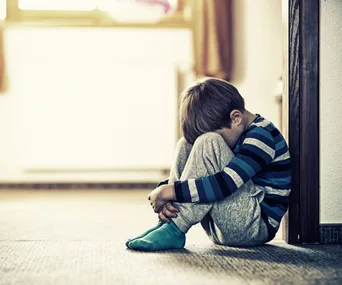Queensland girl Summer Steer was four years old in June 2013 when she started complaining of stomach pain. Her mother Andrea Shoesmith noticed she was having loose black bowel movements and took her to the family GP, who said she had giardia and sent her home.
Nearly two weeks later, Summer’s older brother Finn woke Andrea up in the middle of the night, telling her: “Summer has a bleeding nose.”
When Andrea went to investigate, Summer started vomiting blood. She called Triple Zero and took Summer to the Emergency Department at Noosa Hospital but just 15 minutes later, Summer was sent home again, an inquest into her death was told.
Summer started vomiting blood again in the taxi queue and was readmitted, only to be discharged again four hours later.
Early the next morning, Summer started vomiting again and collapsed. She was rushed to hospital again, where an X-ray finally discovered a 2cm lithium button battery lodged in her esophagus. It had been there for two weeks and caused massive internal damage. Summer was airlifted to Brisbane hospital for emergency surgery but it was too late – she died on the operating table.
Yesterday, coroner John Hutton presented his findings into Summer’s death, making 13 recommendations to improve the safety of button-sized lithium batteries, including developing safer batteries, making packaging more secure and raising awareness of just how dangerous they can be.
He also said medical professionals should be better educated about the symptoms of battery ingestion. However, he said such measures would probably not have prevented Summer’s death.
Andrea said she was happy with the findings and hoped Summer’s death would help save other children from the same fate.
When lithium batteries come into contact with saliva, a chemical reaction can occur which causes them to burn through tissue.
Approximately 260 children swallow lithium batteries in Australia every year. Summer is the first one to die.



